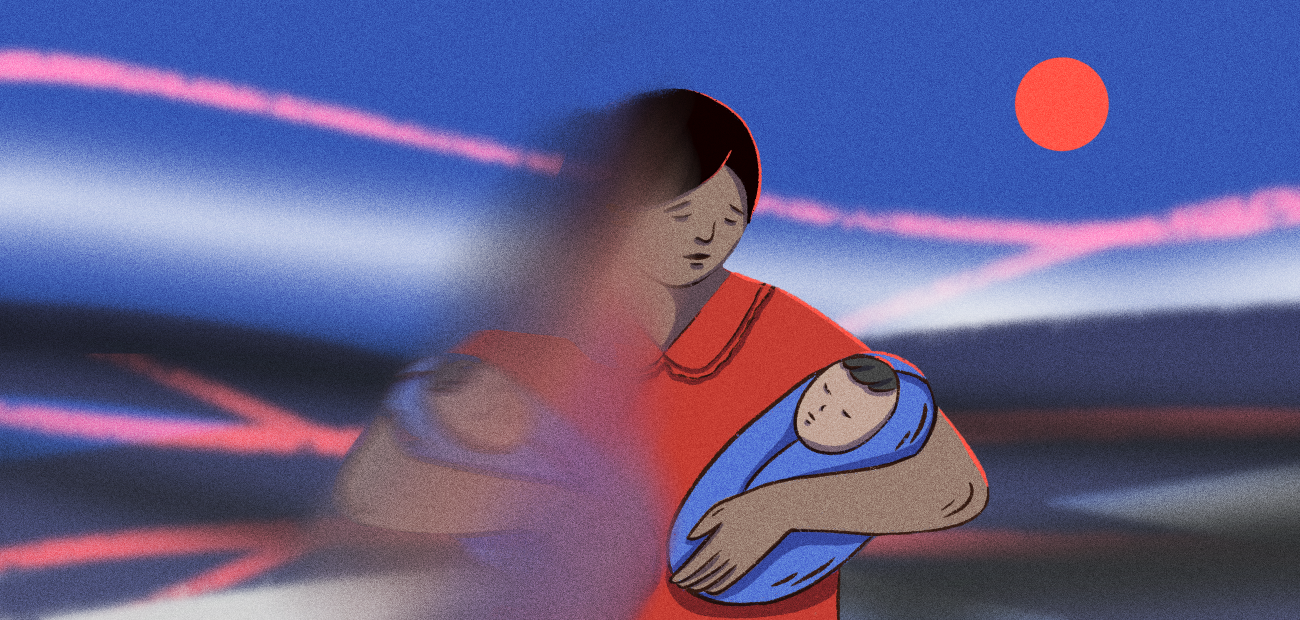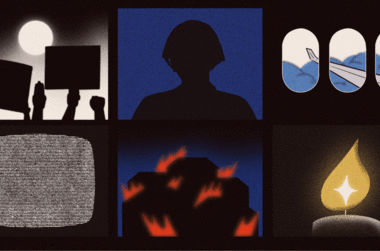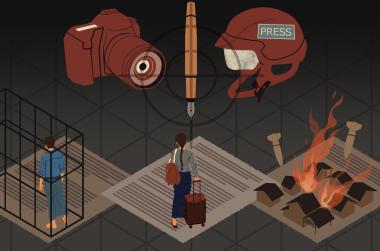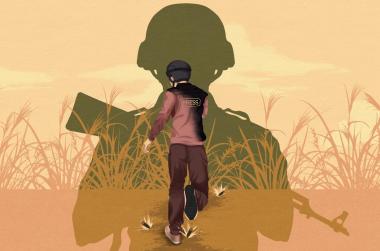This diary is written by a journalist from Mon State who is seeking refuge in Mae Sot, Thailand. They are receiving support from The Kite Tales to write these diaries.
Journalists are a rare breed where I come from in Mon State; they can be counted on one hand. After the military seized power, reporters like me became frontline targets, relentlessly pursued and arrested by the military.
The coup government has a cruel pattern of arresting parents, children and relatives if they can't find their targets, so when I fled across the border to Thailand I had no choice but to bring my entire family with me.
We escaped to Mae Sot, a town on the Thai-Myanmar border entirely unfamiliar to us. My father is a retired schoolteacher over the age of 60, and my mother is a teacher volunteering at charity schools. My father also tutored 10th-grade English for private tuition classes, and he used to earn over a million Myanmar Kyats a month (nearly $1,000 USD). For a small town, this income allowed us to live comfortably, without worry. But when we arrived in Mae Sot, our family's life took a drastic turn.
As undocumented migrants in Thailand, finding legal work in Mae Sot was impossible. At the same time, the Myanmar Kyat plummeted in value, plunging our family deeper into hardship.
Back then, the news agency I worked for was small and couldn't pay a decent salary. I only earned 4,000 baht ($120) a month. That amount was barely enough to cover rent, water, electricity, and Wi-Fi, leaving nothing for food or healthcare.
Three years after arriving in Mae Sot, I found work at a larger news agency. They paid nearly 20,000 baht a month, a salary that allowed my family to live without constant worry. For me, it was an opportunity to pour my passion into journalism. About a year into this new job, I unexpectedly became pregnant. When I first discovered I was pregnant and had an ultrasound, I learnt I was carrying twins. Our entire family was overjoyed, discussing and planning how to gather all the necessary things for our little ones.
The early months were brutal with severe morning sickness: dizziness, vomiting, heart palpitations, and an inability to eat. On top of that, I had a medical complication, requiring extreme caution. But our family relied solely on my income, so taking a break from work was simply not an option.
And that's how I lost one of my babies.
A couple of months into the pregnancy I started bleeding and miscarried one of the twins.
Working became very hard. I was constantly reporting on the military coup and its daily atrocities - the arrests and killings of women and children, the indiscriminate airstrikes, the endless inhumanity. My mental health was pushed to breaking point. There wasn't a single day I worked without crying from the emotional toll. Even people I interviewed would tell me: “Sister, please cry; please take your time and ask when you feel better.”
My mental health deteriorated day by day and my physical health followed suit. My doctor warned me that if I continued working, I might lose the remaining baby. So, I had to stop. The moment I left my job, our family's financial struggles returned. My father, unknown to us, began secretly collecting rubbish to make money. I realise that every job has dignity, but knowing about this crushed my heart.
Through all these hardships, my daughter was born healthy. But after childbirth, I, like many women, suffered from postpartum depression. The pain of losing my twin returned with crushing force. Whenever I saw videos of twins on social media, or when buying baby items, I grieved for the twin I lost during pregnancy.
"If my baby were still here, I'd have to buy two of everything," I thought again and again. I became so depressed that I considered suicide.
Just before my daughter turned one month old, an earthquake struck Myanmar. I saw the death, the injuries, and the loss of homes and livelihoods. Among the victims were displaced people from conflict-ridden Shan and Kachin States and the central dry zone. It was sorrow piled upon sorrow for the people of Myanmar. I read these news reports, holding my infant daughter in my arms. The thought that I, with my journalistic skills, couldn't actively contribute to covering such a devastating natural disaster in my own country filled me with a sense of inadequacy and guilt. So, without my family knowing, I started making calls and sent news contributions to a few news agencies.
In a country like ours, facing both conflict and natural disasters, I truly believe that journalists who can disseminate accurate information are indispensable. No matter the challenges, I hope to continue this work.
Artwork by JC who is receiving support by The Kite Tales to produce illustrations.





